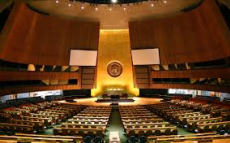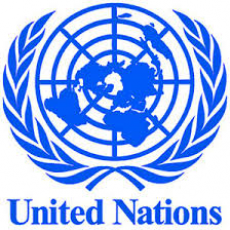
Email: ZYVC057@live.rhul.ac.uk
Total Article : 213
About Me:I'm a graduate student studying International Criminal Law and first started writing for King's News almost 4 years ago! My hobbies include reading, travelling and charity work. I cover many categories but my favourite articles to write are about mysteries of the ancient world, interesting places to visit, the Italian language and animals!

Imagine what it would be like to be able to monitor world poverty and famine, to negotiate the benefits and losses of declaring conflict. Now imagine how rapidly one war sparks off an international crisis, spreading to other countries like it were a game of dominos, and imagine there were, at least in theory, some overarching powers trying to stop it. Before we start talking about the works of the United Nations here are a few need to know facts about international organisations!
International organisations are organisations that involve membership from many countries and can be either:
International non-governmental organisations (INGOs): These are non-profit organisations which are independent from government. They are usually created by ordinary citizens then either funded by companies and governments or they may function exclusively on the work of volunteers. Prime examples of INGOs are Oxfam International, CARE International and Amnesty International.
Intergovernmental organisations (IGOs): An IGO is an international organisation created by a treaty or similar agreements; it involves the membership of sovereign states or fellow international organisations. The World Bank, the North Atlantic Treaty Organisation and the United Nations are just a few of the many IGOs which exist today!
The United Nations:
The United Nations (UN) is an international forum guided by the UN Charter made ‘for states by states’ with the overall aim of obtaining international peace. It is the successor to the League of Nations which was formed in light of the atrocities of WW1 as a means to secure peace between nations. After the failure of the League which wasn’t able to prevent another catastrophic war (WW2) the UN became a more effective and popular organisation with 193 members and two observer states.

The UN is an international institution with many specialised agencies and is divided into five main organs:
The UN General Assembly: This is the branch of the UN that has the authority to admit new members (sovereign states) along with members of the International Court of Justice, Security Council and ECOSOC. All member nations are part of the General Assembly and can vote on important matters but can only make recommendations not binding decisions.
The UN Secretariat: The Secretary General, chosen by the General Assembly with the recommendation of the Security Council, works here with an international staff to carry out the administrative work of peacekeeping operations, surveys and studies regarding the global community.
The International Court of Justice (ICJ): This is the judicial branch of the UN, along with the International Criminal Court, and is composed of fifteen judges elected every nine years who deal with disputes either between UN organs or two countries who go to the ICJ voluntarily.
The UN Security Council (SC): The Security Council is the most powerful branch of the UN made up of 15 countries (five of which are permanent members: the USA, China, Russia, Great Britain and France). Unlike other branches of the institution which can only make suggestions, the decisions of the Security Council are binding and have to be passed by a majority of nine out of all the members and each of the five permanent members, who have veto power (the power to cancel decisions and resolutions), and must vote in favour in order to obtain majority.
The UN Economic and Social Council (ECOSOC): This branch deals with the economic and social work carried out by the United Nations. The ECOSOC has 54 members and works closely with many non-governmental organisations.
So now that you know a little more about the UN we can apply the theories discussed in the previous article to see whether international organisations actually have a noticeable impact on global politics. Realists believe every country is egocentric (selfish) and strives for power so the UN can never fully work whereas liberals believe in international co-operation and are strong supporters of international organisations. What are your thoughts on the UN? Can it actually work or is it a way for some countries to gain more power than others (like the five permanent members of the Security Council with veto power!)? Comment below and find out if you’re more of a realist or liberal when it comes to international organisations!

0 Comment:
Be the first one to comment on this article.